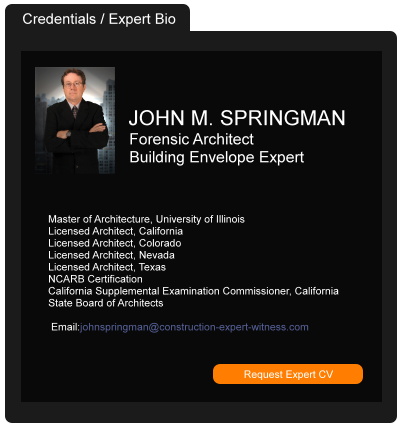Connecticut Builders Right To Repair Current Law Summary:
Current Law Summary: Case law precedent
Building Expert Contractors Licensing
Guidelines Fairfield Connecticut
License required for electrical and plumbing trades. No state license for general contracting, however, must register with the State.
Association Directory
Local # 0780
433 Meadow St
Fairfield, CT 06824
http://www.buildfairfieldcounty.com
Fairfield Connecticut Building Expert 10/ 10
Builders Association of Eastern Connecticut
Local # 0740
20 Hartford Rd Suite 18
Salem, CT 06420
http://www.baec.net
Fairfield Connecticut Building Expert 10/ 10
Home Builders Association of New Haven Co
Local # 0720
2189 Silas Deane Highway
Rocky Hill, CT 06067
http://www.hbanewhaven.com
Fairfield Connecticut Building Expert 10/ 10
Home Builders Association of Hartford Cty Inc
Local # 0755
2189 Silas Deane Hwy
Rocky Hill, CT 06067
http://www.hbahartford.com
Fairfield Connecticut Building Expert 10/ 10
Home Builders Association of NW Connecticut
Local # 0710
110 Brook St
Torrington, CT 06790
http://www.hbanwct.org
Fairfield Connecticut Building Expert 10/ 10
Home Builders Association of Connecticut (State)
Local # 0700
3 Regency Dr Ste 204
Bloomfield, CT 06002
http://www.hbact.org
Fairfield Connecticut Building Expert 10/ 10
Building Expert News and Information
For Fairfield Connecticut
Statute of Frauds Applies to Sale of Real Property
Providing “Labor” Under the Miller Act
Montana Federal District Court Finds for Insurer in Pollution Coverage Dispute
Unbilled Costs Remain in Tutor Perini's Finances
Court of Appeal Holds That Higher-Tiered Party on Construction Project Can be Held Liable for Intentional Interference with Contract
Social Engineering Scams Are On the Rise – Do I Have Insurance Coverage for That?
Safer Schools Rendered Unsafe Due to Construction Defects
Surviving a Tornado – How to Navigate Insurance Claims in the Wake of the Recent Connecticut Storm
Preparing For and Avoiding Residential Construction Disputes: For Homeowners and Contractors
Trumark Homes Hired James Furey as VP of Land Acquisition
New Jersey Court Washes Away Insurer’s Waiver of Subrogation Arguments
Why Clinton and Trump’s Infrastructure Plans Leave Us Wanting More
AIA Releases Decennial 2017 Updates to its Contracts Suites
Construction Recovery Still Soft in New Hampshire
A Recap of the Supreme Court’s 2019 Summer Slate
HB24-1014: A Warning Bell for Colorado Businesses Amid Potential Consumer Protection Changes
Kushner Company Files Suit Against Jersey City Over Delays to Planned Towers
It’s Time to Change the Way You Think About Case Complexity
Update Coverage for Construction Defect Claims in Colorado
Collaborating or Competing with Construction Tech Startups
Insurers Reacting to Massachusetts Tornadoes
America’s Infrastructure Gets a D+
10 Answers to Those Nagging Mechanics Lien Questions Keeping You Up at Night. Kind of
Pending Sales of U.S. Existing Homes Rise Most in Four Years
Giant Gas Pipeline Owner, Contractor in $900M Payment Battle
The Need for Situational Awareness in Construction
“License and Registration, Please.” The Big Risk of Getting Busted for Working without a Proper Contractor’s License
‘Hallelujah,’ House Finally Approves $1T Infrastructure Funding Package
Asbestos Confirmed After New York City Steam Pipe Blast
Weslaco, Texas Investigating Possible Fraudulent Contractor Invoices
Congratulations 2019 DE, MA, NJ, NY and PA Super Lawyers and Rising Stars
Client Alert: Catch Me If You Can – Giorgio Is No Gingerbread Man
Not so Fast – Florida’s Legislature Overrules Gindel’s Pre-Suit Notice/Tolling Decision Related to the Construction Defect Statute of Repose
Equal Access to Justice Act Fee Request Rejected in Flood Case
Maryland Contractor Documents its Illegal Deal and Pays $2.15 Million to Settle Fraud Claims
Exact Dates Not Needed for Construction Defect Insurance Claim
Pending Sales of U.S. Existing Homes Increase 0.8% in November
Wake County Justice Center- a LEED Silver Project done right!
Reference to "Man Made" Movement of Earth Corrects Ambiguity
London's Walkie Talkie Tower Voted Britain's Worst New Building
Determination That Title Insurer Did Not Act in Bad Faith Vacated and Remanded
Fourth Circuit Holds that a Municipal Stormwater Management Assessment is a Fee and Not a Prohibited Railroad Tax
Exponential Acceleration—Interview with Anders Hvid
Nevada Budget Remains at Impasse over Construction Defect Law
Claim Preclusion: The Doctrine Everyone Thinks They Know But No One Really Knows What it Means in Practice
Floating Crane on Job in NYC's East River Has a Storied Past of Cold War Intrigue
School Blown Down by Wind Still Set to Open on Schedule
Real Estate & Construction News Roundup (6/26/24) – Construction Growth in Office and Data Center Sectors, Slight Ease in Consumer Price Index and Increased Premiums for Commercial Buildings
Second Circuit Finds Potential Ambiguity in Competing “Anti-Concurrent Cause” Provisions in Hurricane Sandy Property Loss
House Passes Bill to Delay EPA Ozone Rule


































































